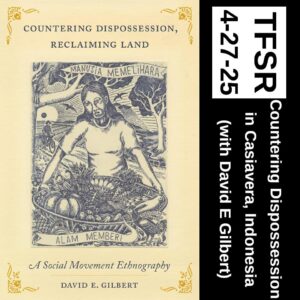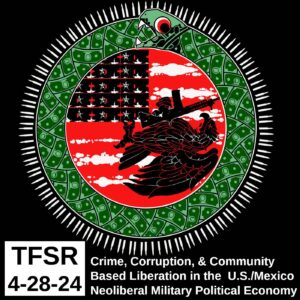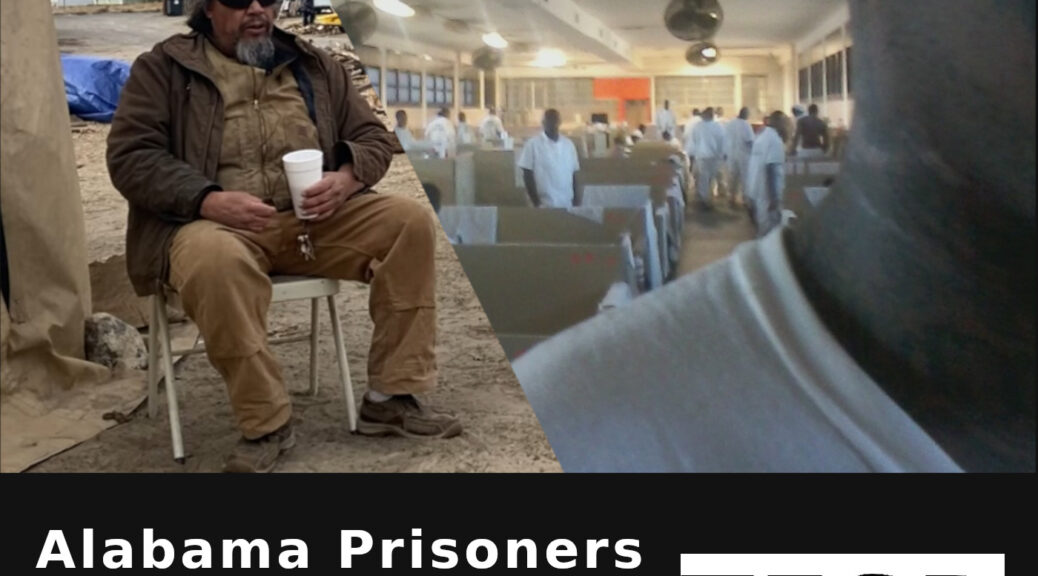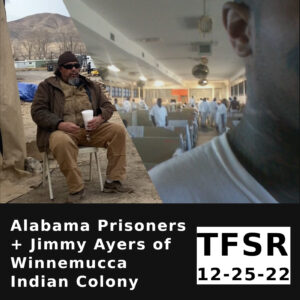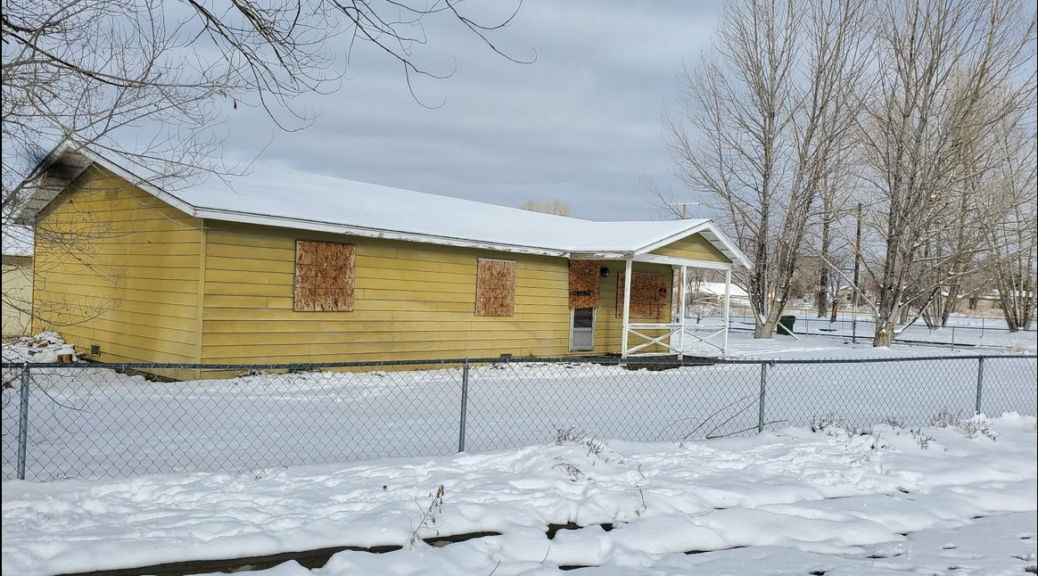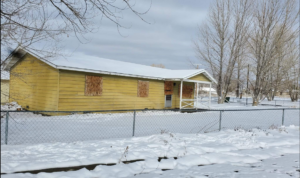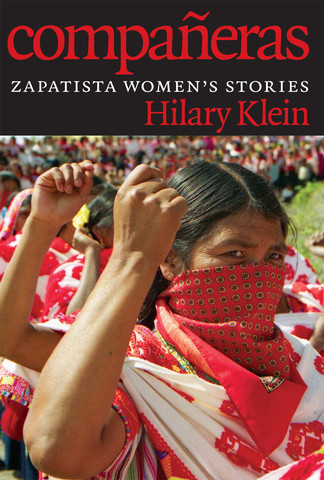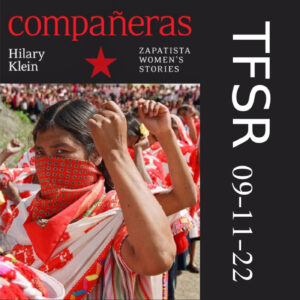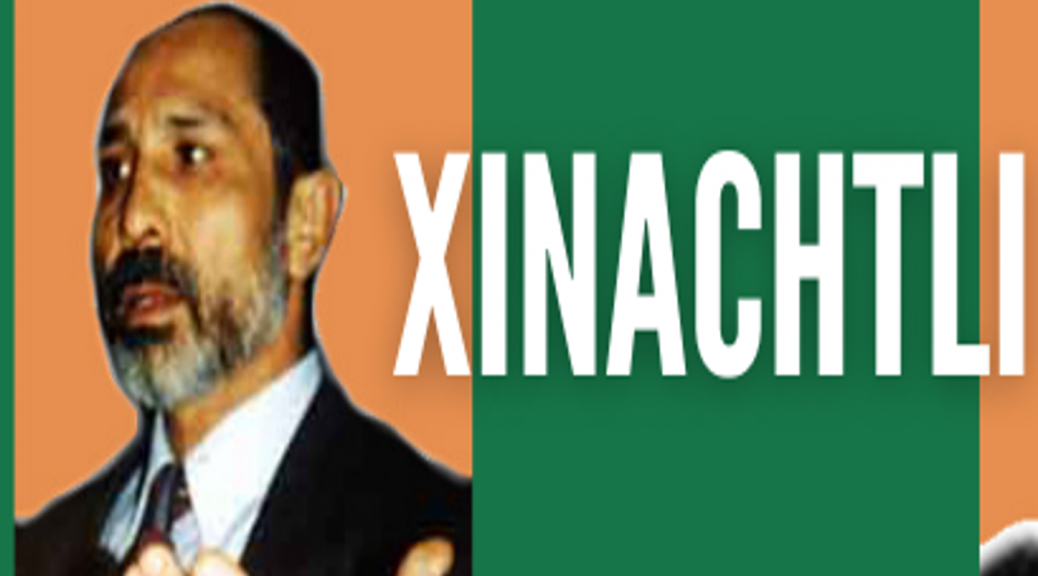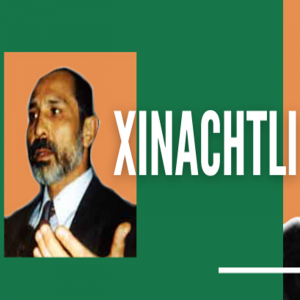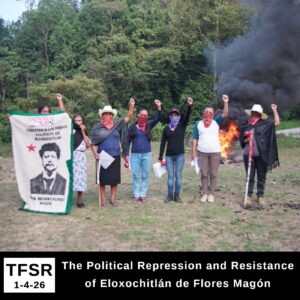
This week, an interview we just conducted with Madeleine Wattenbarger and Axel Hernández of the Cooperativa de Periodismo in Mexico and Ambar Ruiz of Radio Zapote about the case of autonomous resistance and repression in the Mazateca community of Eloxochitlán de Flores Magón in Oaxaca, Mexico, so named for being the birthplace of the Cipriano Ricardo Flores Magón, revolutionary Mexican anarchist who was murdered by medical neglect by the US prison system in 1922 (check out our 2022 episode on the history).
We talk about the rise to economic and political power of the family of Manuel Zepeda and his daughter Elena, their weaponization of the judiciary against community defenders resisting a hijacking in 2014 of the traditional community assembly and the years of organizing by Mazateca women whose loved ones face long prison sentences. We also speak about the case of Miguel Peralta, a Mazateca anarchist challenging his 5 decade sentence related to this case, as well as the recent murder by medical neglect while in prison of militant anarcho-punk Yorch Esquivel at the hands of the Mexican state at the behest of UNAM.
Media mentioned:
- Observatorio Memoria y Libertad: https://observatoriomemoriaylibertad.org
- Radio Zapote: https://radiozapote.org/
- Avispa Midia: https://avispa.org/en/
- Cooperativa de Periodismo Instagram: https://www.instagram.com/chingadamadrx/
- Cooperativa de Periodismo Youtube: https://www.youtube.com/channel/UCSIrcSb3v_q8hxD1iqulLSw
Groups to follow:
Further reading:
- “A Oaxacan Indigenous Community Fights a New Round of Bogus Charges,” NACLA
- “Communal care, backbone of resistance in Oaxaca,” Ojalá
- Excerpts of our translation of the MANIFESTO OF THE FEMALE SELF-DEFENSE FORCES IN SUPPORT OF FREEDOM (June 2023, translated & narrated): https://ahuehuete.substack.com/p/eloxochitlan
- And finally, a letter from Miguel Peralta to Yorch, narrated by Miguel Peralta
Announcements
Xinachtli Phone Zap Continues
First up, Chicano anarchist prisoner Xinachtli (state name Alvaro Luna Hernandez) was transferred on December 23rd from a hospital in Galveston back into solitary at McConnell Unit in Texas as punishment for the call-in campaign. He’s still lacking access to an ADA-accessible bathroom and shower unit and has not had his property or commissary card returned. According to his supporters, Xinachtli is still experiencing weakness in his legs and has now been forced back into a completely inaccessible space, where he faces a serious risk of another life-threatening fall or injury.
Xinachtli’s supporters demand remains: Xinachtli must be moved out of McConnell into an ADA-accessible facility that can address his medical needs. McConnell has already proven it can’t and won’t provide adequate resources to care for Xinachtli in his current state. They are putting his life in danger.
- Updated phone blast at https://bit.ly/xphoneblast
- Instagram at @FreeXinachtliNow
- McConnell Unit: +1 361 362 2300
- McConnell Unit Director Angela Chevalier +1 361 362 6328
- TDCJ Executive Director: +1 936 437 2101
To learn more about his case, check out our interview with Xinachtli from late 2024, or the earlier recording of him telling the story of his case.
Prisoners for Palestine Hunger Strike Continues
Four members of the Prisoners for Palestine collective, which we covered in our November 30th 2025 episode, continue their hunger strike with 3 of them at around or beyond 60 days without food as of this recording. As the situation is shifting daily, we suggest you get updates for ways to provide solidarity and the current demands of the hunger strikers at PrisonersForPalestine.org
Imam Jamil Al-Amin, Presente!
Revolutionary Jamil Al-Amin, formerly known as H. Rap Brown, returned to the ancestors on November 23, 2025 after 25 years in federal prison. The Imam was convicted in 2002 for the murder of a sheriff’s deputy and Al-Amin continued to be incarcerated despite the video-taped confession of another man with the means and the motivation for the killing. You can find a brief writeup and further readings, right before notes about the state murder by medical neglect of Yorch in the December 10th issue of In Contempt
Stop Cop City RICO Dismissed
Judge Farmer finally decided to dismiss the RICO charges against the 61 defendants in the Stop Cop City case on the grounds that they were filed improperly. This doesn’t remove the domestic terrorism or arson charges against some remaining defendants, and the state says it will refile the RICO charges but for now that’s a little off our comrades’ plates. To learn more, check out our latest episode on the subject from October.
Jessica Reznicek In Transitional Housing
Catholic Worker and pipeline saboteur Jessica Reznicek has entered transitional housing and left prison, proper. You can read her address to the public at the ABCF website. To hear an interview on her case, check out the one linked in our shownotes.
You can write directly to Jess at:
Fresh Start Women’s Center (Women’s Residential Correctional Facility)
1917 Hickman Rd,
Des Moines, IA 50314
Northumberland 2 Has Some Charges Dismissed
Judge Rosini dismissed 11 charges total between defendants Cara and Celeste—including one count of ecoterrorism and several misdemeanors. The two friends from Massachusetts were accused of liberating hundreds of minks from a fur farm in PA that kills thousands of minks every season.
As Phily Anarchist Black Cross says:
There is a pretrial conference in February. After that will come trial.
While this is big and exciting news, the case isn’t over yet. Cara and Celeste still have many charges to fight. Trial will come with extra costs on top of the other legal fees.
You can donate and learn more at phillyabc.org/nu2
Prairieland Defendants Trails Scheduled
Finally from DFW Support Committee:
A date has been set for the start of the Prairieland Defendants’ federal jury trial: February 17th! We have been told by multiple lawyers this date is very unlikely to change. The North Texas federal court circuit in Fort Worth is well know for being fast and firm with trial dates. Also, Dario Sanchez’s state trial is set for 1/12 in Johnson County. This is not a lot of time! We’re calling on supporters everywhere to do everything you can to help the defendants get the best defense possible. That means continued fundraising for expert witnesses and other trial expenses, writing letters to keep their spirits up, and raising awareness to highlight the importance of this case. If you’re able to come to DFW for the trial please do! We will have other concrete asks soon, so please stay tuned!
Letter writing info is available at: https://dfwdefendants.noblogs.org/getinvolved/
Fundraiser links:
-
https://www.givesendgo.com/supportDFWprotestors
-
https://www.gofundme.com/f/get-artist-des-revol-an-immigration-attorney
-
https://www.gofundme.com/f/help-maricelas-family-while-she-fights-for-justice
. … . ..
Featured track:
- De Cara A La Pared by Lhasa from La Llorona
Continue reading The Political Repression and Resistance of Eloxochitlán de Flores Magón, Oaxaca



